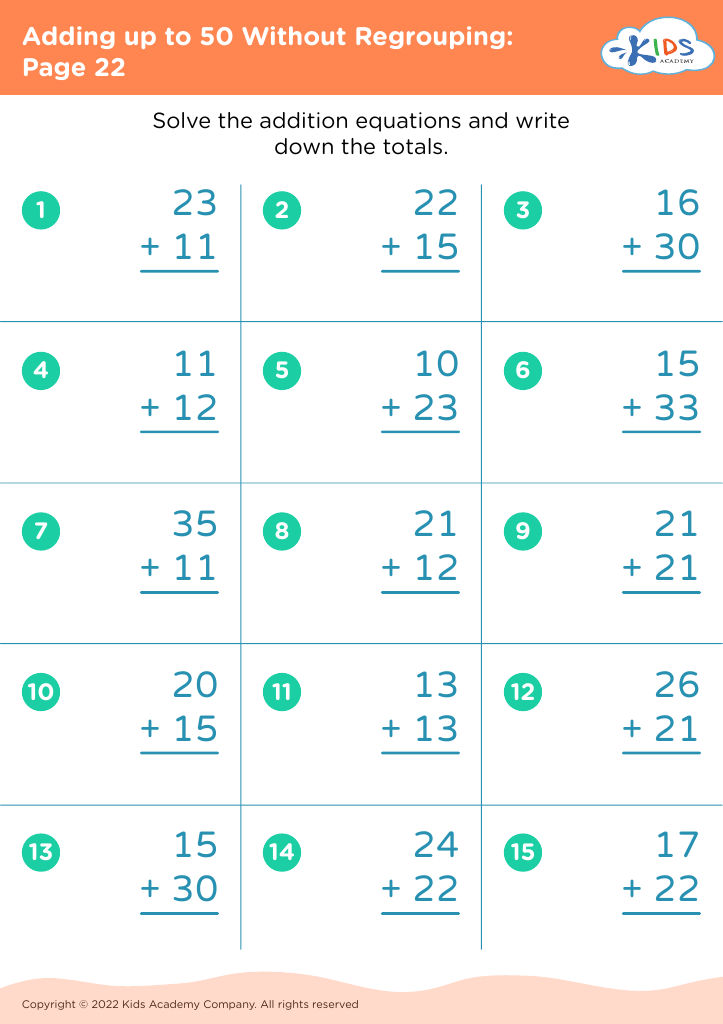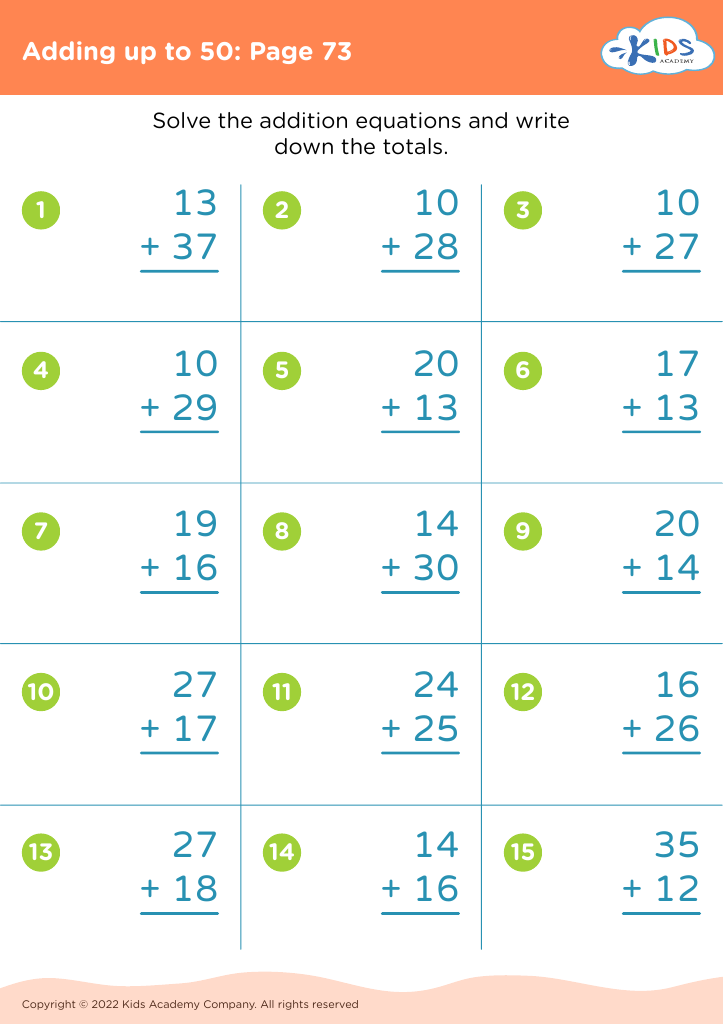Color recognition Adding up to 50 Worksheets for 7-Year-Olds
3 filtered results
-
From - To
Discover our exciting "Color Recognition Adding up to 50 Worksheets for 7-Year-Olds," designed to blend math skills with creative fun! Engaging young minds, these printable worksheets enhance arithmetic proficiency by presenting colorful math problems, ensuring kids stay interested and motivated. As children practice addition within 50, they also hone their color recognition abilities, making math a delightful, multisensory adventure. Perfect for parents and teachers, these worksheets provide enjoyable learning opportunities, fostering academic growth and artistic expression. Elevate your child's math skills and boost their confidence with our innovative, educational resource tailored specifically for young learners. Try them today!
Parents and teachers play a crucial role in a child's early development, and focusing on skills like color recognition and basic addition up to 50 is fundamental for 7-year-olds. Color recognition is more than just identifying colors; it is linked to cognitive development, language skills, and even emotional intelligence. Recognizing colors can increase the child's vocabulary and ability to describe the world, which contributes to better communication skills.
On the other hand, being able to add numbers up to 50 is a milestone in a child's mathematical development. Arithmetic like this lays down the groundwork for more complex math skills in the future. Proficiency in addition at an early stage improves problem-solving abilities and promotes logical thinking, which is essential for success in various academic areas.
When parents and teachers actively engage with children in these areas, they are not just meeting current educational benchmarks but are also preparing the children for life skills that are essential. Positive reinforcement and interactive practices in both color recognition and simple arithmetic build the child's confidence and interest in learning, setting a strong foundation for lifelong education. These skills are interconnected parts of a holistic educational approach that nurtures a well-rounded, capable, and intellectually curious child.
















